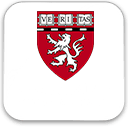Shoulder Dislocation
A dislocated shoulder is a painful injury, but complete recovery is possible. As orthopedic specialists in shoulder dislocations, we have helped many patients in Atlanta and around Georgia return to sports or work quickly. A shoulder dislocation occurs when the ball (humeral head) is forced out of the socket (glenoid). It can occur with a fall onto an outstretched arm or when the arm is twisted or rotated with an intense force. When a shoulder dislocates, the shoulder stabilizers, ligaments, cartilage, labrum, and soft tissues are often injured, i.e. stretched or torn. There may be numbness due to stretching injury of nerves as a result of the dislocation. The shoulder can dislocate out of the front (anterior) or out of the back (posterior). A labral tear or Bankart lesion is a common cause of instability in the shoulder after a dislocation.
The shoulder dislocation is usually diagnosed on the field of play, or in an emergency room with a physical exam and X-rays. In Atlanta, we work with athletic trainers or physical therapists who are often able to relocate the shoulder on the field. In more rural areas of Georgia, patient’s may have to travel a bit more for care. A complete dislocation requires urgent care. A partial dislocation or subluxation is less urgent, but important nonetheless. Depending on the severity of injury, an MRI of the shoulder may be needed to assess internal damage.
Treatment
A medical provider’s treatment of a dislocated shoulder first involves putting the ball back in the socket. This is important to do quickly for reducing pain and protecting the joint. The shoulder is immobilized in a sling and ice is intermittently applied to the shoulder.
Once the shoulder inflammation calms down, after a period of rest, non-surgical care is initiated. Physical therapy exercises are prescribed to work on mobility and strength while the ligaments and cartilage try to heal inside. The goal is to prevent recurrent dislocations and obtain stability, strength and mobility. Outpatient arthroscopic surgery may be needed in select cases of labral tears or repeated dislocations.















